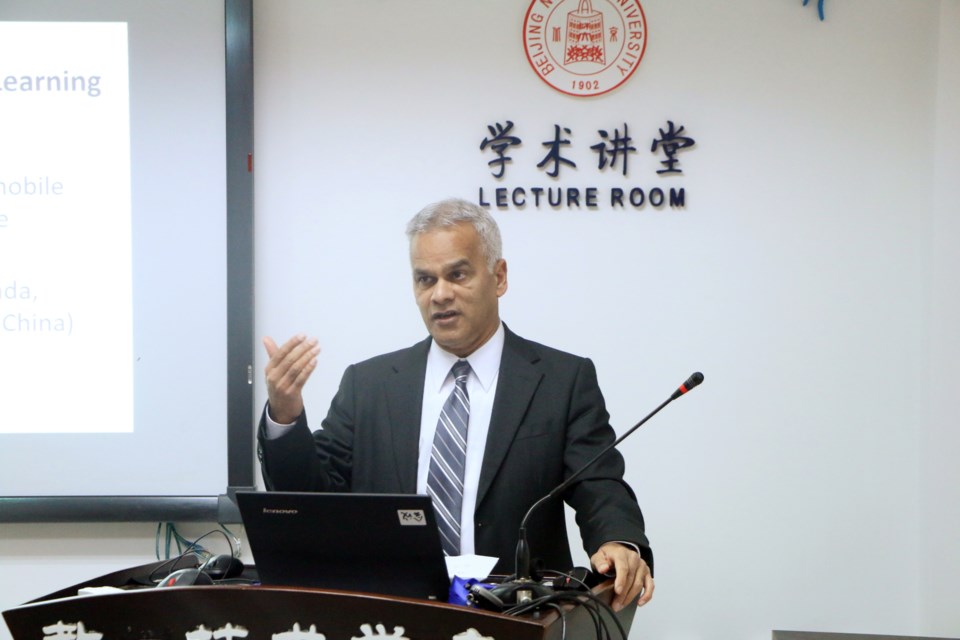ATHABASCA – In this age of tablets, cellular phones and other portable devices, even those who grew up only dreaming of such things, have come to rely on these technologies, and except for a few hold-outs, they are becoming more and more connected to the world around them.
At this point, downloading an app to play a game or learn a new language or even to take a course is almost taken for granted, but Dr. Mohamed Ally, who teaches in the Doctor of Education in the distance education program at Athabasca University, is considered the foremost expert in adapting course material for online education. He usually teaches the instructional design and learning theories courses.
“I did my Master's degree in use of technology in education and for my PhD I did my degree again in how you design and deliver education using technology, especially emerging technologies,” Ally said.
Back when he started developing courses for mobile devices, flip phones were the peak cellular technolgy and tablets did not yet exist.
"It was flip phones. There was no color; it was the basic phone. It was challenging because you can only do so much because the amount of memory in the phone was very limited and not too much color and those kinds of things. But we managed to develop some lessons and deliver it on the mobile phone,” he said.
That first course was to teach new immigrants and students English and how to improve their English in the workplace and for their courses. The course was free, but in the time before apps, students had to click on a link.
"Anyone could take those lessons as long as they had the link to go to that site. So, the actual lessons were on a server and then the students use their phone and access the lesson on their phone from the server,” said Ally.
"A lot of people in different countries, they actually use those lessons produced at Athabasca and some people actually did a research project to look at the effectiveness of mobile learning.”
Ally noted that in the business world, like in e-commerce and social media, they are ahead in the use of mobile devices and education needs to do more for education; something the pandemic has shone a spotlight on. Harvard University, for example, announced July 6 it is moving all their studies online and only allowing 40 per cent of undergraduate students to live on campus for the coming academic year.
“For mobile learning, you need to actually do detailed design and development of your course. What some of these universities are doing because they're not ready for online mobile learning, they're actually putting the paper-based document on the computer and students have to read it. There is no interaction,” Ally said in general about post-secondary institutions who are forced to move online because of the pandemic.
“It has to be interactive and the problem with this pandemic is this university school system doesn't have the time to make their courses interactive, which is kind of giving a bad name to online mobile learning.”
Ally added he recently received an email from someone in Sudan asking how to put university courses online.
“Education has to change. If you look at some countries, especially the senior officials, they were educated face-to-face and they have a hard time making the shift to online mobile learning, but I think it is changing. They have to move on or they're going to be left behind,” he said.
One of those changes may include robots, who either assist teachers or do the teaching as intelligent agents themselves. With artificial intelligence the learning of the future will be able to adapt to the student, Ally said, allowing for personalized learning catering to students with different learning preferences.
“If you think back 15 years ago, would you imagine you can do what you do now with your mobile phone? Fifteen years from today what's it going to be like? Maybe robotics and artificial intelligence will play an important role. Now the issue is having a teacher physically in a classroom with students because of the pandemic. Maybe in 15 years, there'll be a robot in the classroom working alongside with the teacher or the teacher will be away and the robot will be in the classroom.”
Heather Stocking, TownandCountryToday.com
Follow me on Twitter @HLSox



